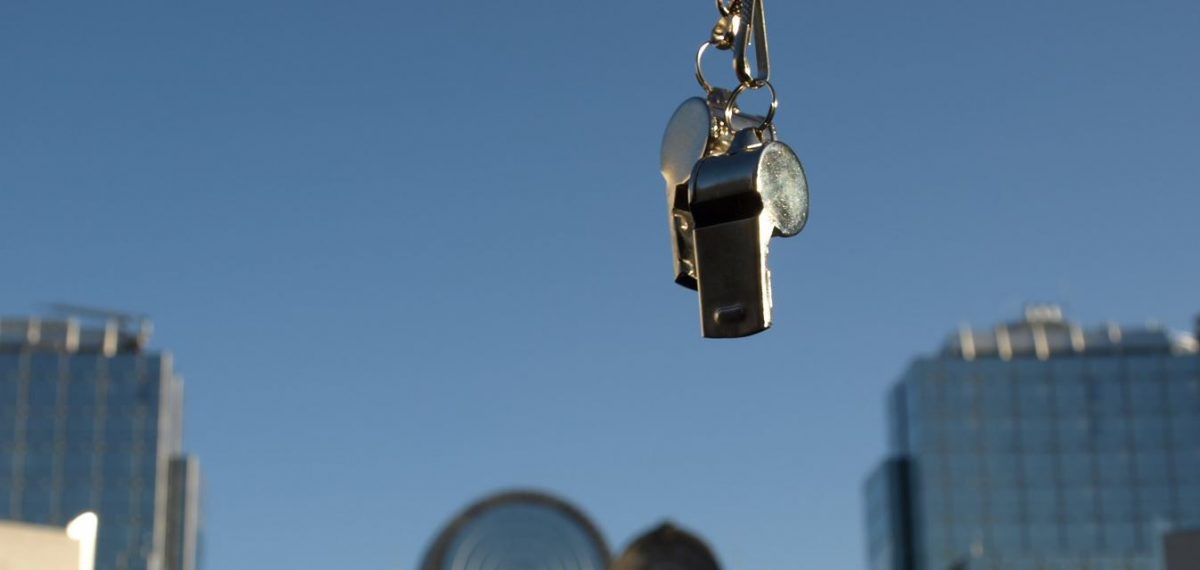When cases of corruption, fraud or maladministration come to light it often took a courageous whistleblower. Someone from within has alerted the authorities, the media or the wider public that something is not quite right. Luxleaks, Swissleaks the revelations of Edward Snowden – many high-profile cases were brought to public knowledge by whistleblowers over the last years.
But also for smaller cases the information that whistleblowers provide can be essential. Be it to uncover corruption cases with EU funds or to exposes cases of maladministration in the EU institutions.

Since 2004 the EU staff regulation foresees that all staff of the EU Institutions have to blow the whistle when they suspect fraud or corruption.
Article 22a of the Staff regulations: “Any official who, in the course of or in connection with the performance of his duties, becomes aware of facts which gives rise to a presumption of the existence of possible illegal activity, including fraud or corruption, detrimental to the interests of the Communities, or of conduct relating to the discharge of professional duties which may constitute a serious failure to comply with the obligations of officials of the Communities shall without delay inform either his immediate superior or his Director-General or, if he considers it useful, the Secretary-General, or the persons in equivalent positions, or the European Anti-Fraud Office (OLAF) direct.”
Since the entry into force of the revision on 1 January 2014 Article 22c goes on to specify that institutions need to create a procedure to adequately protect whistleblowers:
…each institution shall put in place a procedure for the handling of complaints made by officials concerning the way in which they were treated after or in consequence of the fulfilment by them of their obligations under Article 22a…
When it comes to adequate protection of whistleblowers however the EU Institutions are dragging their feet. We pointed this out in our EU Integrity Study almost a year ago – out of the 10 EU institutions analysed, only the Commission has internal guidelines in place. Following our report the EU Ombudsman launched an own-initiative inquiry on the question. The results that were published yesterday show that the situation is largely unchanged from a year ago: “seven out of the nine EU institutions questioned have still to comply with a January 2014 obligation to introduce internal whistleblowing rules”.
On a positive note, both the European Court of Auditors and the Ombudsman itself have acted on our recommendation. We congratulate both institutions for their efforts and agree with Emily O’Reilly that she is leading by example and that the Ombudsmans guidelines can serve as useful guidance for others.
Hopefully this will be heard by the inter-institutional committee that is currently discussing whether the institutions can adopt a common approach to their obligations in this area. EU citizens deserve institutions that do all they can to prevent corruption, fraud and maladministration. And of course EU civil servants deserve an employer that takes good care of them and provides for guidelines that ensure that the EU staff regulations can be respected.





